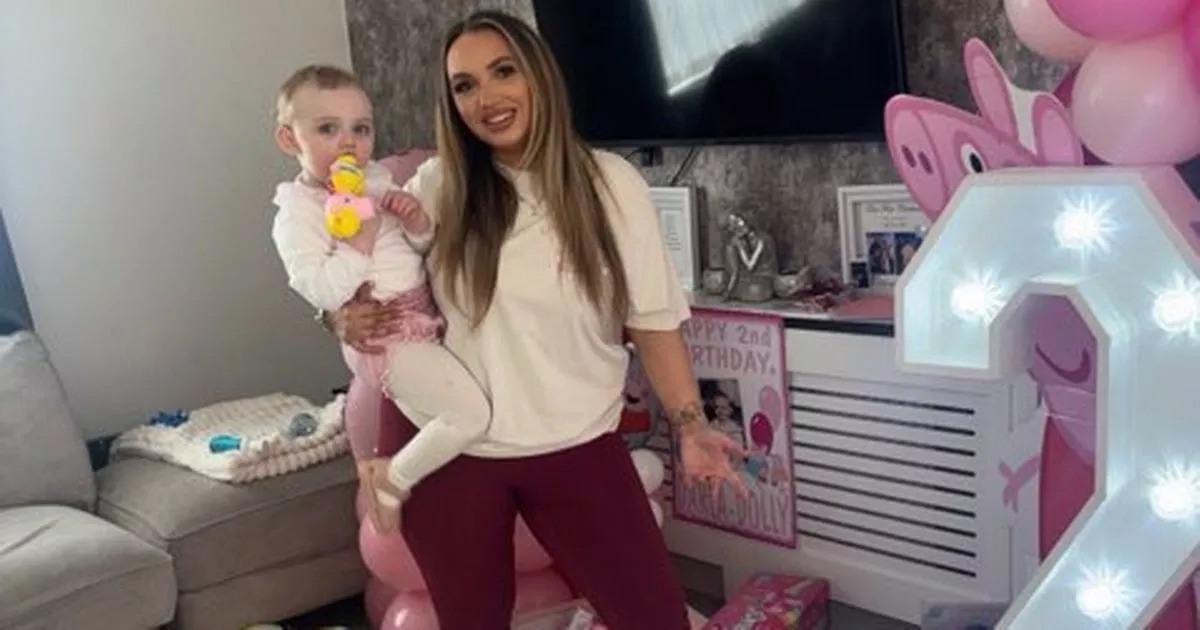Libby Leah’s daughter was just a few days old when she had to have major surgery
07:00, 05 Jul 2025Updated 07:50, 05 Jul 2025
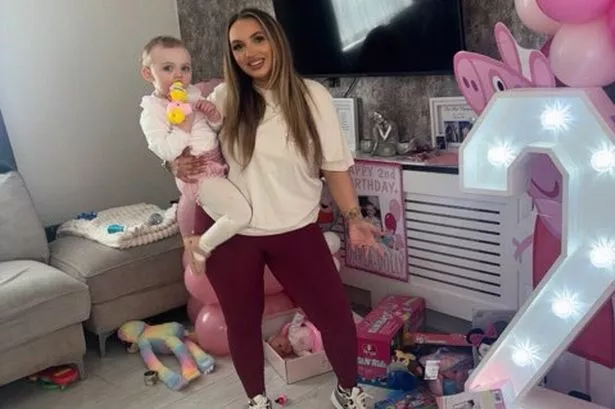 Libby Leah with her daughter Darla now aged two (Image: Libby Leah )
Libby Leah with her daughter Darla now aged two (Image: Libby Leah )
A mum said she was left housebound for months after her baby girl was diagnosed with a rare condition. Libby Leah gave birth to her daughter Darla Dolly back in 2023 and described the labour as “traumatic” which left her needing to use a wheelchair for a period of time.
On top of this, the 27-year-old noticed Darla was crying very little and “seemed very peaceful and quiet” for a newborn baby. Libby said she noticed during Darla’s first night at home she wasn’t drinking and was vomiting a green substance, so was taken straight to Alder Hey Children’s Hospital.
Speaking to the ECHO, Libby, who lives in Liverpool, said: “It was around 24 hours and Darla had not had a feed, she had not drank. I just knew something was wrong. We went to Alder Hey who were amazing.
“It was like they knew what she had before even looking at her. They were fast, I think within 24 hours she had a diagnosis.”
Baby Darla was diagnosed with a condition called long segment Hirschsprung disease, a disorder which affects the bowel. The colon moves digestive material through the gut by a series of contractions and relaxations called ‘peristalsis’, according to the NHS.
Peristalsis is controlled by nerves (called ganglion cells) which are found in between the layers of muscle tissue. Children who have Hirschsprung’s disease are missing the ganglion cells along part of the length of their bowel.
This prevents the bowel from relaxing and so results in difficulty passing faeces or an obstruction in the bowel. At just a couple of days old, Darla had to have a five-hour surgery where surgeons found a blockage.
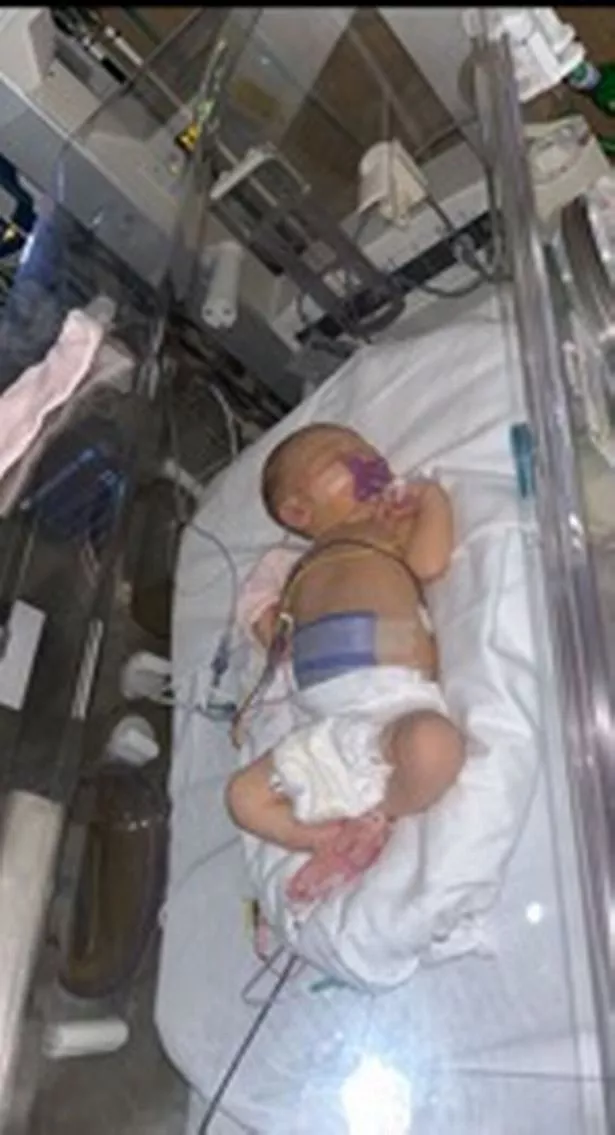 Darla at just a few days old (Image: Libby Leah )
Darla at just a few days old (Image: Libby Leah )
Libby told the ECHO: “When the doctor saw the blockage, they said Darla was 24 hours from death and if we hadn’t taken her that day she could’ve potentially passed away at home.”
Darla was fitted with a stoma – an opening on the surface of the abdomen which has been surgically created to divert the flow of faeces or urine – which she still has today at two-years-old.
Libby added: “Darla is amazing, she’s the happiest child. She lets anyone change it for her. Sometimes she gets a bit restless when she wants to play and it does take a little longer than changing a nappy. But she is amazing with it.”
The mum-of-two said when Darla was diagnosed with the condition, there was no emotional or physical support for Libby as a parent. Libby said this caused her mental health to plummet and she suffered with severe anxiety.
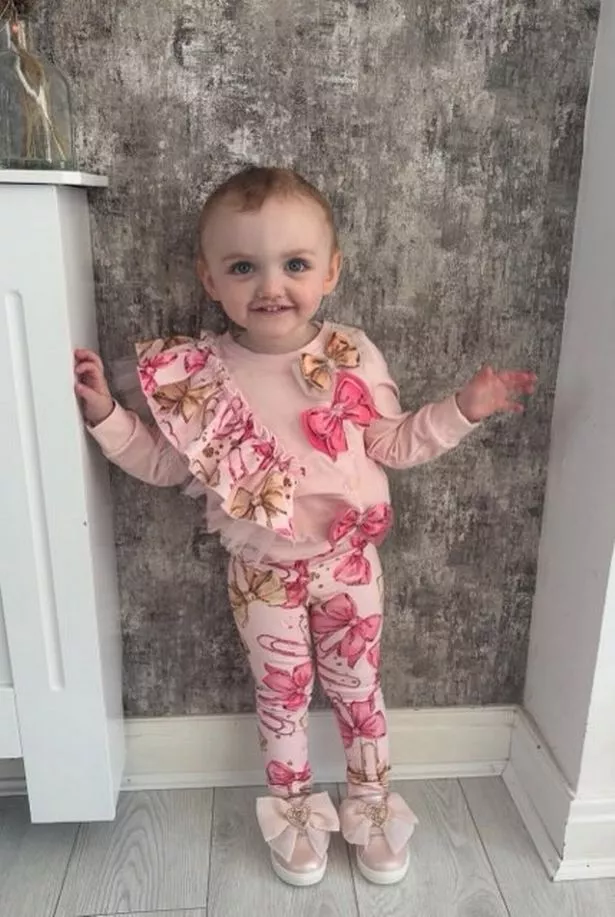 Darla now aged two-years-old (Image: Libby Leah )
Darla now aged two-years-old (Image: Libby Leah )
She said: “We stayed in the Ronald McDonald House and if we hadn’t had that, I don’t what I would have done. I was a little all over the place. I was traumatised from the labour and then having a newborn baby having to have major surgery.
“I don’t think it hit me right away. It was around the second week it did, and that’s when the anxiety kicked in.”
Libby said the anxiety also caused her to be housebound as she was so afraid of Darla becoming ill. She said: “I had this constant fear that if anything went wrong, I would not know what to do.
“The anxiety was so bad, I didn’t leave the house for three months because I was so scared she would get an illness.”
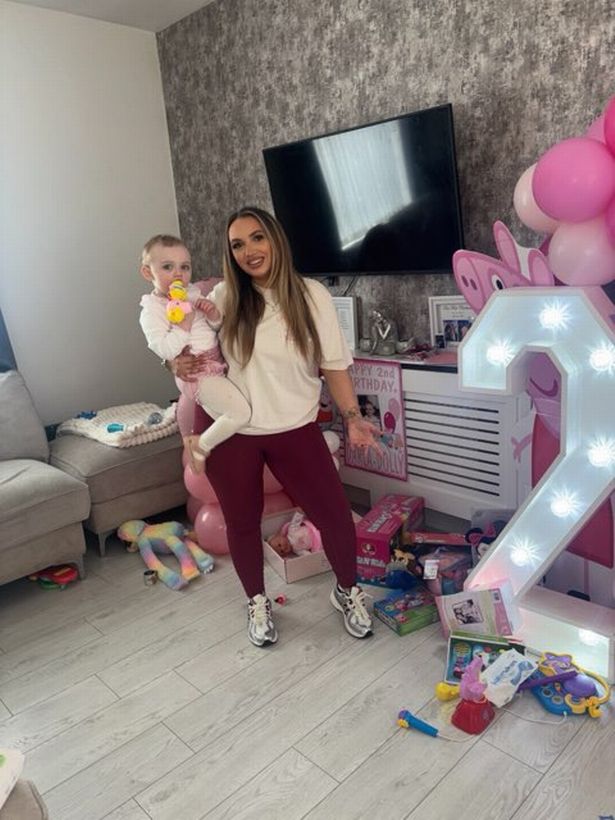 Libby Leah with her daughter Darla now aged two (Image: Libby Leah )
Libby Leah with her daughter Darla now aged two (Image: Libby Leah )
Libby has since started a TikTok page – @libbygirlmum – where she raises awareness of Darla’s condition and shares her experience of the lack of emotional support for parents with children who have complex medical needs or rare diseases.
Through this, Libby met Tom Richard who hosts Tom’s Hirschsprung’s Podcast and works with Alder Hey – the leading centre for Hirschsprung’s disease treatment and research. Libby and Tom are now looking to run a ‘Hirschsprung’s Parent Support Team’ based the hospital.
Through this, they will offer support for parents who’s babies or children have been diagnosed with the disease in the hopes it relieves the stress and worry by hearing their stories. Libby also hopes to offer physical support such as creating care packages for new mums.
Libby and Tom are looking for other parents of children who have Hirschsprung’s disease in the Liverpool area to volunteer for the support team. Libby has asked to get in touch with her if they would like to do so.
